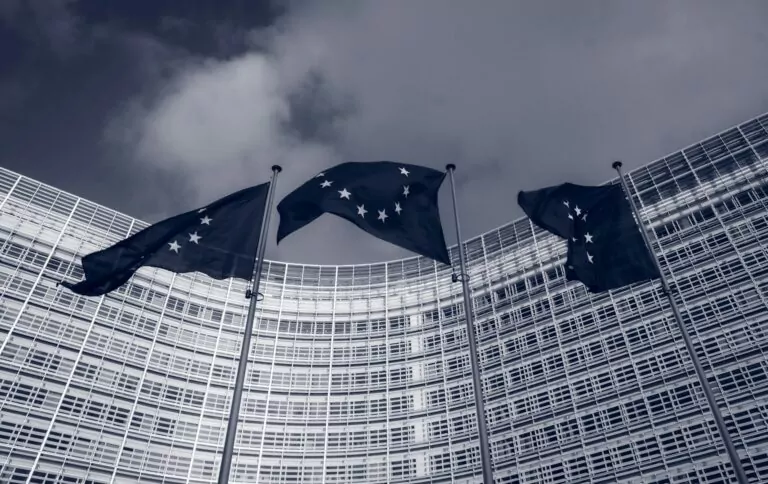EU Parliament enacts legislation prohibiting forced labour goods

The European Union (EU) has prohibited the sale of products made through forced labour in the EU market after reaching an agreement to implement the “Forced Labour Regulation,” effective March 13, 2024.
The move will affect businesses that trade products within or from the EU and aims to promote the sustainability of businesses operating within its jurisdiction and the products available in its market.
It builds upon previous initiatives like the Corporate Sustainability Reporting Directive (CSRD) introduced in January 2023 and the EU Corporate Sustainability Due Diligence Directive (CS3D).
Forced labour is defined according to Article 2 of the 1930 ILO Convention No. 29, as any work or service extracted from a person under threat of penalty, without their voluntary consent. The updated definition now explicitly includes child labour.
Regulation Background:
- The Regulation was initially proposed by the European Commission on September 14, 2022.
- The proposal had undergone the standard EU legislative process, with negotiations between the European Parliament and the European Council resulting in a provisional agreement on March 5, 2024.
- The final adoption of the regulation occurred on March 13, 2024.
Scope of the Regulation:
- The primary aim of the Regulation is to prohibit the sale or export of products manufactured using forced labour in the EU market.
- This ban extends to any product that involves forced or child labour in any phase of its supply chain, encompassing activities such as harvesting, extraction, production, processing, or manufacturing of any component, whether fully or partially.
- However, logistical services such as transportation and distribution seem to fall outside the regulation’s scope.
- The regulation affects all types of products, perishable or non-perishable, produced, distributed, or exported from the EU by businesses of all sizes, including small and medium-sized enterprises.
- The regulation has extraterritorial implications, similar to those of CSRD and the potential CS3D, impacting a wide range of global businesses operating within EU markets.
Implications for Businesses:
- The Regulation does not explicitly impose additional due diligence requirements on businesses regarding forced and child labour.
- Instead, it is designed to complement existing or future due diligence obligations, such as those outlined in CS3D.
- Albeit, to ensure compliance with the regulation, businesses must establish clear policies and procedures for identifying, monitoring, and addressing instances of forced or child labour within their operations and supply chains.
- These measures will enable businesses to guarantee, and if necessary, demonstrate that their products are free from forced or child labour.
Enforcement:
- The EU Commission will create and regularly update a database identifying high-risk areas for forced and child labour, aiding the ban’s implementation.
- Member State authorities will handle investigation and enforcement, ensuring compliance through customs rules and screening.
- Each Member State will appoint a regulatory authority to investigate alleged non-compliance.
- If a forced or child labour substantiated-concern arises, authorities will launch a formal investigation.
- If forced or child labour is confirmed, authorities will prohibit sale or export, mandate withdrawal from the market, and dispose of affected products, with detailed documentation and potential judicial review.
Repercussions for non-conformity:
- Products in violation of the ban must be prevented from entering the market or being exported if they haven’t reached end-users.
- If only a portion of a product is affected, that part can be withdrawn, although this may be more difficult for mixed or compounded products.
- Withdrawn parts cannot be re-exported; instead, they must be donated, recycled, or destroyed, with costs covered by the relevant business. However, critical products can be stored until forced or child labour is eradicated from the supply chain.
- Non-compliant businesses may face penalties imposed by competent authorities, determined by Member States to be dissuasive, effective, and proportionate.
- Despite calls for provisions aiding victims of forced labour, these have not been included in the Regulation.



